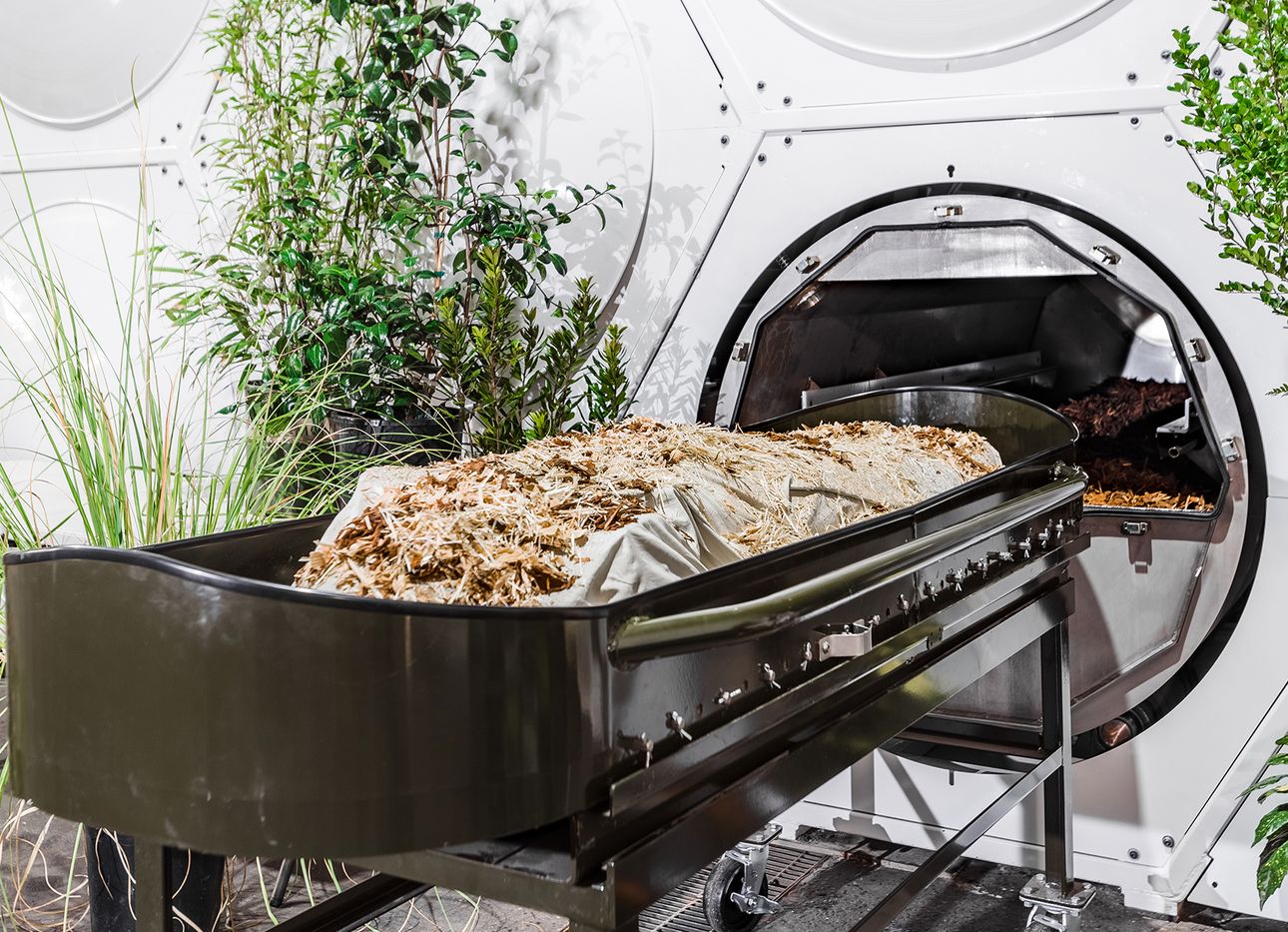
Why Human Composting Is the Future of Death Care
When a loved one passes, the typical death care options are both limited and harmful to the planet. Conventional burial involves embalming bodies in toxic solutions, caskets made from wood take up plots of land for eternity, and the average cremated body emits about 40 pounds of carbon and requires some 30 gallons of fuel to burn. These are some of the issues that prompted Katrina Spade to consider composting as a soil-based form of cremation while studying architecture at the University of Massachusetts, Amherst, back in 2013, when she completed her master’s thesis, “Of Dirt and Decomposition: Proposing a Place for the Urban Dead.” She went on to initiate feasibility studies of a process known as natural organic reduction (NOR), where human remains are mixed with plant material and left alone for four to six weeks, during which time microbes break everything down into a nutrient-dense soil that can be used to nourish new life. Then Spade launched a landmark campaign to legalize NOR in Washington State, where she currently lives, that was signed into law in 2019. In January, she opened the doors to Recompose, an NOR funeral home located in a Seattle suburb and designed by local architectural firm Olson Kundig (whose principal, Tom Kundig, was the guest on Ep. 37 of our Time Sensitive podcast). Last year, two other NOR companies were formed in the region, signaling that the practice isn’t a pipe dream, but a realizable future.
Beyond offering a model for human death care that gives back to the earth, Recompose minimizes the burial process’s environmental impact: The emissions and odors from NOR are minimal compared with traditional methods. Equally significant, Spade’s initiative reframes the idea of death in the context of the circle of life. Charlotte Bontrager, whose late mother was among Recompose’s first participants, told The Seattle Times that she thought NOR reflected how “every living thing in history has eventually been cared for,” noting the grace and beauty of the process. Recompose’s approach, she concluded, “seems like a peaceful way for the body to move on to the next phase.”